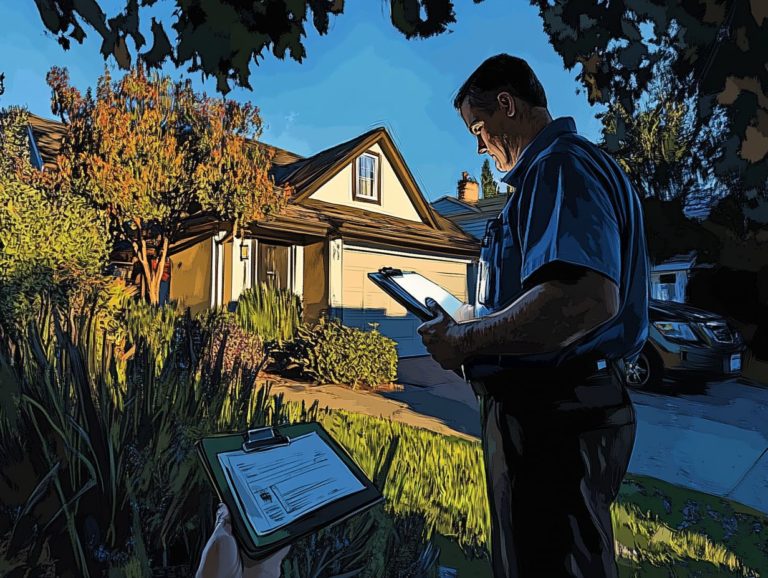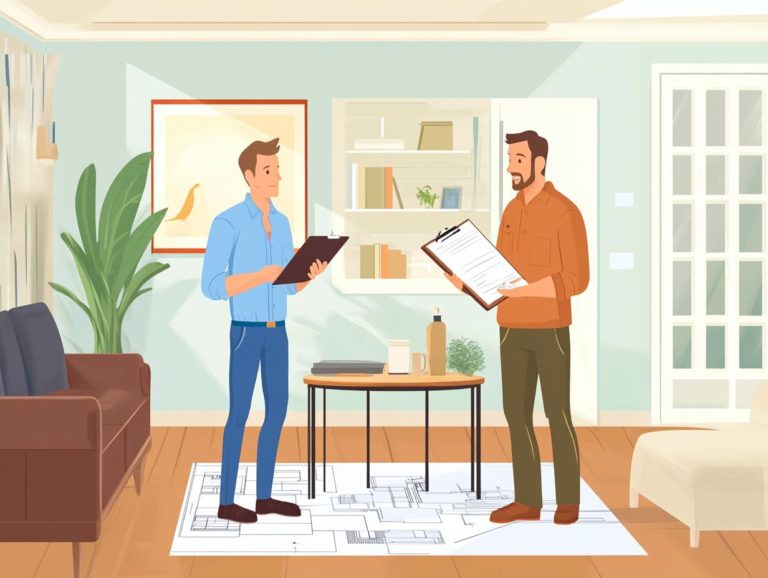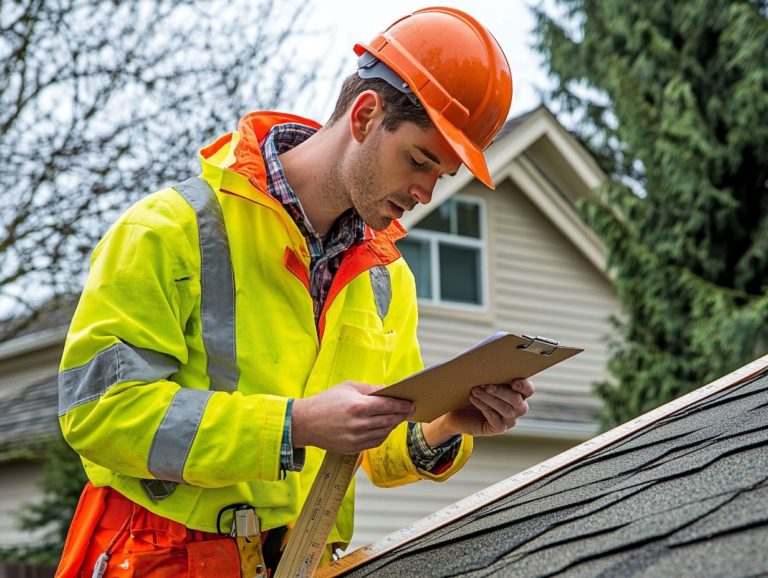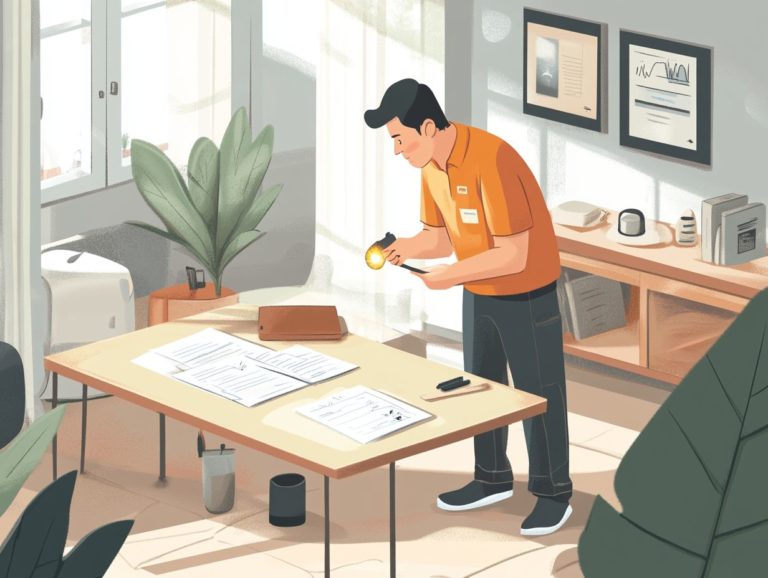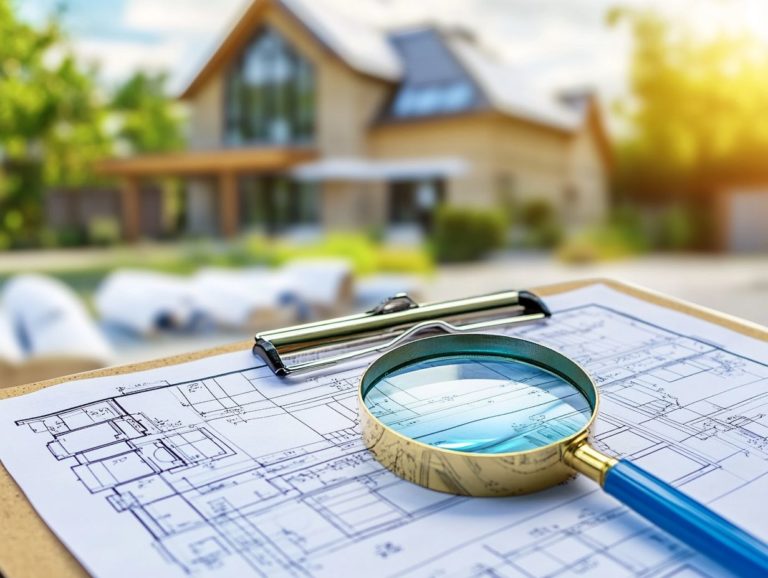5 Common Misunderstandings About Home Inspections
Home inspections are often misunderstood. This can lead to costly mistakes for both buyers and sellers.
You might think inspections are only for older homes or that they re an unnecessary expense. Perhaps you believe a home inspector will uncover every issue, or that inspections are only relevant for buyers.
This article aims to clear up five common myths about home inspections. We will clarify their true purpose, benefits, and what you can expect during the process.
By understanding these key insights, you can empower yourself as a homeowner or prospective buyer. This will help you make informed decisions at every stage.
Contents
- Key Takeaways:
- 1. Home Inspections Are Only Necessary for Old Houses
- 2. Home Inspections Are a Waste of Money
- 3. A Home Inspector Will Find Every Single Problem
- 4. Home Inspections Are Only for the Buyer
- 5. Home Inspections Are Not Required
- What Is a Home Inspection and Why Is It Important?
- Frequently Asked Questions
- What are the 5 common misunderstandings about home inspections?
- Do I need a home inspection for a newly constructed home?
- Are home inspections only for the benefit of the buyer?
- Will a home inspection cover every aspect of the home?
- Is a home inspection necessary if the home looks well-maintained?
- How often should I have a home inspection done?
Key Takeaways:
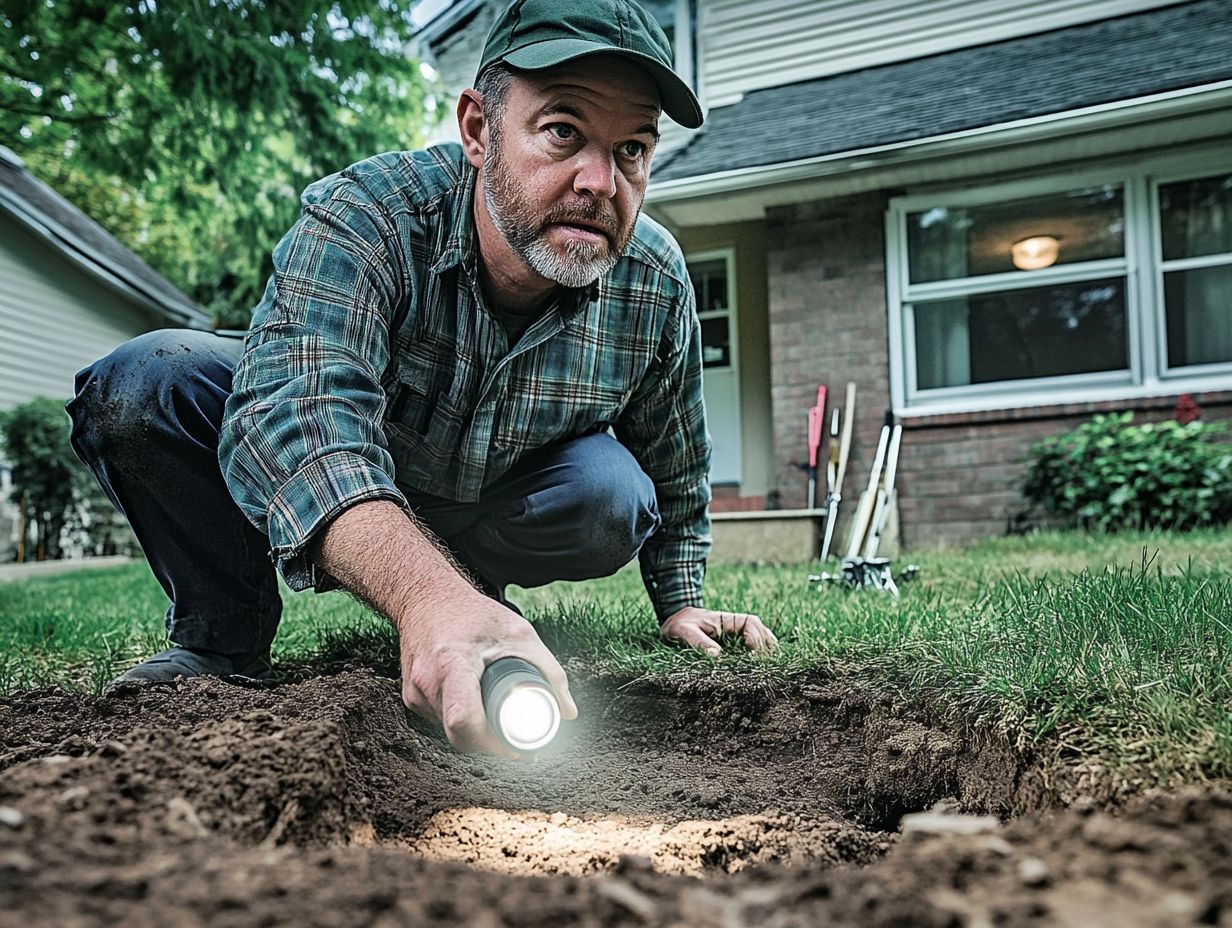
A home inspection is necessary for all types of houses, not just old ones.
It is a valuable investment that can save you money and prevent future problems.
Home inspectors might not find every issue, but they can identify major problems that could affect the safety and value of a home.
1. Home Inspections Are Only Necessary for Old Houses
Many buyers and sellers believe home inspections are only needed for older houses. This misconception puts you at risk during the buying and selling process, especially if there are safety hazards in newer homes. To ensure you’re well-informed, check out this guide on how to avoid common home inspection errors.
Even newly built homes can hide problems, such as poor wiring or plumbing issues that won’t be obvious at first. Hiring a qualified inspector helps bring these potential problems to light.
Taking this proactive step can save you from expensive repairs down the line. A thorough inspection can reveal issues that threaten the safety and value of your property.
2. Home Inspections Are a Waste of Money
Many believe home inspections are unnecessary expenses. In reality, investing in a home inspection can save you from unexpected repair costs and gives you peace of mind, especially when you follow 5 steps to a successful home inspection.
This strategy helps uncover hidden issues like roof leaks or electrical faults that could lead to costly repairs if neglected. With a detailed report, you can negotiate repairs or price reductions confidently.
Don t risk financial loss. Invest in a home inspection today!
3. A Home Inspector Will Find Every Single Problem
Home inspectors are skilled at spotting many issues, but they won’t uncover every problem. For example, some issues related to home presentation might be influenced by common myths about home staging that could affect a buyer’s perception. Some problems might be hidden or require special tests to detect.
A standard inspection typically covers foundational elements, plumbing, electrical systems, and major appliances. However, it may overlook serious concerns like mold or radon gas a colorless, odorless gas that can be harmful at high levels.
To fully understand the property’s condition, consider additional evaluations, such as radon testing or termite inspections, especially if the area suggests a need for them.
This comprehensive approach ensures you address all potential issues and make informed decisions about your property.
Schedule your home inspection now to protect your investment!
4. Home Inspections Are Only for the Buyer
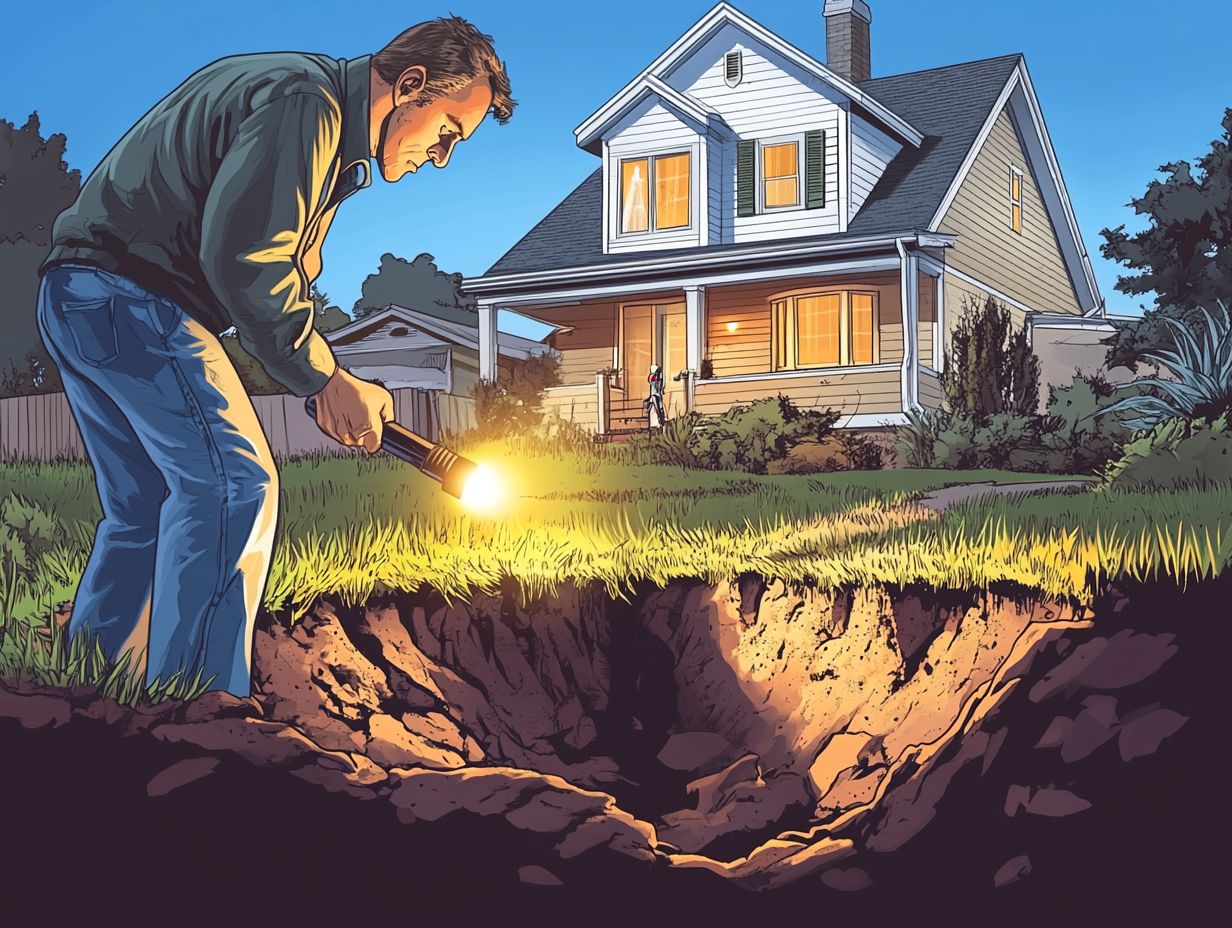
Many individuals mistakenly think that home inspections are exclusively for buyers. However, as a seller, you can reap significant benefits from understanding the basics of home inspections ahead of time.
This proactive step allows you to address potential issues and avoid any unwelcome surprises during the sales process.
By taking this approach, you can identify necessary repairs early. This ensures your property aligns with market expectations.
This not only streamlines the appraisal process where an inspector s report can be an invaluable asset but also instills confidence in prospective buyers. Knowing the home has been thoroughly inspected alleviates concerns.
This makes buyers more inclined to consider a fair offer. Ultimately, this preemptive strategy can lead to a smoother transaction, minimizing the chances of last-minute negotiations and delays.
5. Home Inspections Are Not Required
While home inspections aren t legally required, they are essential in the real estate transaction process. Lenders often insist on them, as they provide you with invaluable insights into the property s condition.
This process enables you to uncover any hidden issues. It ensures that the property meets local building codes and regulations.
During the inspection, professionals carefully check structural elements, plumbing, electrical systems, and other critical components. This protects your investment and gives you leverage when negotiating repairs or price adjustments before finalizing the sale.
The findings can impact the home appraisal significantly. They also affect financing options available to you.
Securing a thorough inspection is vital for achieving a favorable deal and ensuring peace of mind for both you and the seller.
What Is a Home Inspection and Why Is It Important?
A home inspection is your gateway to a thorough evaluation of a residential property, conducted by a certified home inspector. This process is designed to unearth potential issues, ensuring that both buyers and sellers have a clear and comprehensive understanding of the property’s condition absolutely essential in any real estate transaction.
This meticulous assessment dives deep into critical areas such as structural elements, electrical systems, plumbing, and more. It provides you with vital insights into everything from minor concerns to significant defects.
A qualified inspector not only holds the necessary certifications but also brings years of experience. This enables them to spot issues that may elude untrained eyes.
The importance of detailed inspection reports cannot be overstated. These documents are essential tools in negotiations, equipping you with the intelligence needed to make informed decisions.
Ultimately, your understanding of home inspections can significantly impact property evaluations. Knowing the 5 essential questions for home inspectors ensures that all parties involved have a true understanding of the property’s real value and condition before making any commitments.
What Does a Home Inspection Cover?
A thorough home inspection delves into a wide array of components, including the structural integrity of the foundation, HVAC systems (heating, ventilation, and air conditioning), and electrical systems. You might also find specialized tests, such as radon testing, mold assessments, and termite inspections, as part of this essential process.
These elements are not just critical for safety and comfort; they play a significant role in the property’s longevity. For example, a compromised foundation could lead to serious structural issues in the future, making early detection vital.
Additionally, the condition of HVAC systems affects both energy efficiency and indoor air quality. Outdated electrical systems can present fire hazards.
Each facet of the inspection offers valuable insights into the home s overall condition. This helps you make informed decisions as a potential buyer.
Should any red flags emerge during the standard inspection, you may want to consider additional inspections that focus on specific concerns. This approach ensures you have a comprehensive understanding of the property s needs before making any commitments.
How Much Does a Home Inspection Typically Cost?
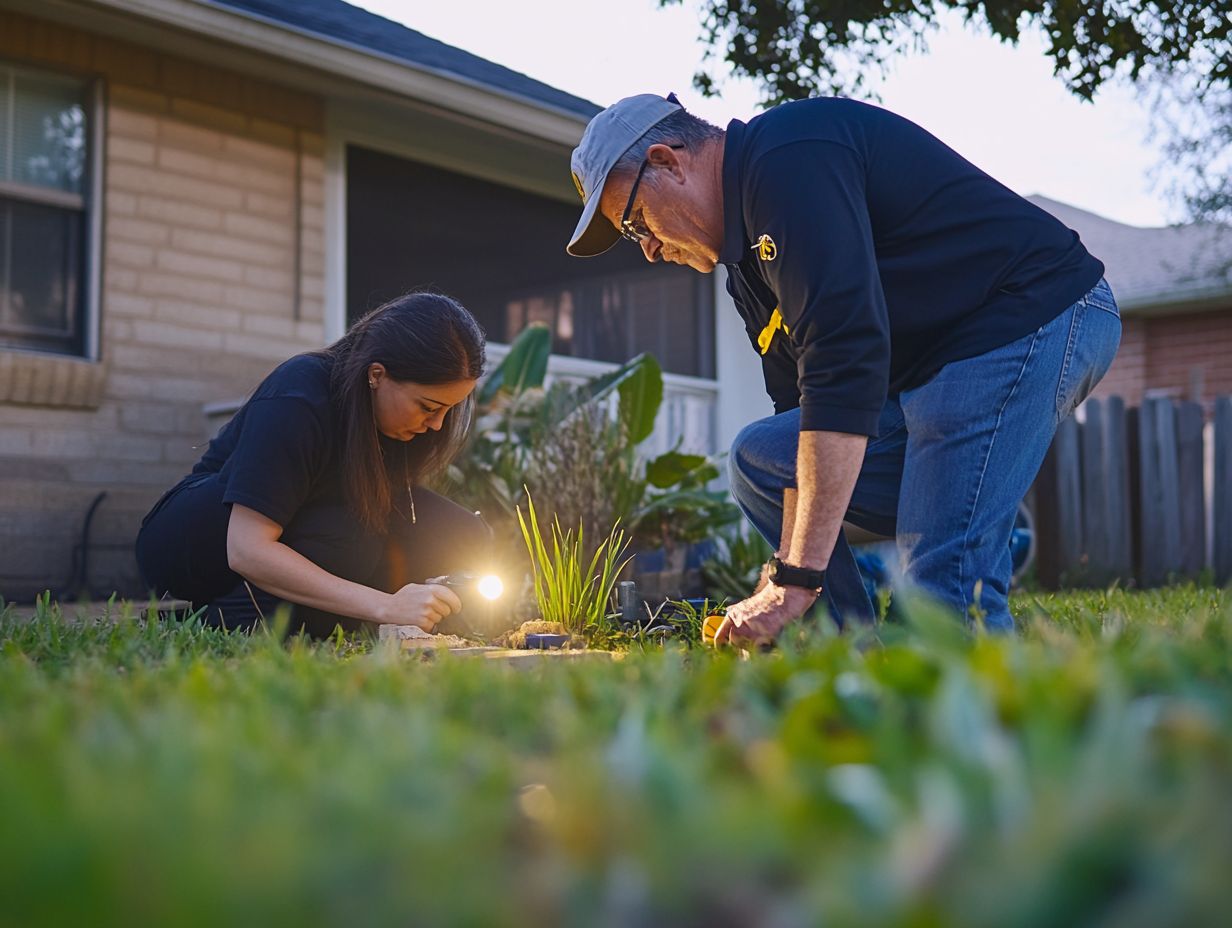
The cost of a home inspection generally fluctuates based on several factors, including the size and location of the property. However, it’s an investment worth making, as it can reveal potential issues that may save you money on home maintenance in the long run.
Factors such as the home’s age, the systems being evaluated, and local market demands can greatly influence pricing. In metropolitan areas, for example, you might find prices ranging from $300 to $800, while smaller towns may offer more budget-friendly rates.
No matter the upfront cost, you can save big by identifying hidden repairs and maintenance needs early on. Inspection reports typically highlight essential repairs that, if overlooked, could lead to costly surprises later.
Making that initial investment is a savvy financial move in the grand scheme of homeownership.
What Are the Benefits of Getting a Home Inspection?
Getting a home inspection presents numerous benefits whether you’re buying or selling. You’ll receive a detailed inspection report that aids in your negotiation process and offers peace of mind about the property’s condition.
A thorough inspection significantly reduces risks, helping you avoid future financial surprises from hidden defects that could crop up later. This proactive approach enables you to make informed decisions based on solid data rather than mere assumptions.
The potential for negotiation becomes much stronger; the inspection findings can give you leverage to request necessary repairs or concessions from the seller, leading to a more equitable transaction.
By fostering open dialogue between both parties, these insights lay the groundwork for a smoother real estate experience, enhancing trust and transparency throughout the journey.
When Is the Best Time to Get a Home Inspection?
The optimal time to schedule a home inspection is during the real estate transaction process specifically, after your offer is accepted but before you finalize the sale. This is often part of an “inspection contingency,” which means that the sale depends on the results of the inspection.
This critical window allows you to evaluate the property thoroughly, uncovering any hidden issues that might not be immediately visible. Conducting the inspection at this stage can provide valuable insights that could influence your negotiations with the seller, potentially leading to necessary repairs or price adjustments.
The results of the inspection can significantly impact the home appraisal process, as appraisers typically consider the property’s condition when determining its market value. By addressing any deficiencies early on, you can ensure a smoother transaction, allowing you to make informed decisions and protect your investment.
What Should a Homeowner Do If Issues Are Found During the Inspection?
If you uncover issues during a home inspection, it’s essential to address them promptly, as they can significantly influence your repair costs and the negotiation process with potential buyers.
Taking swift action is paramount. Your first step should be to consult qualified professionals who can assess the severity of the identified problems. These experts will provide tailored estimates and recommendations that suit your specific situation.
Next, prioritize repairs by concentrating on the most critical issues those that could pose safety hazards or lead to more extensive damage if left unattended.
Recognizing how these findings impact not only your immediate home maintenance but also your long-term property value will enable you to make informed decisions that enhance both your current living conditions and future resale potential.
Frequently Asked Questions

What are the 5 common misunderstandings about home inspections?
Here are five things to know about home inspections that you should be aware of: 1) they are only necessary for older homes, 2) they are not required for newly constructed homes, 3) they are solely for the benefit of the buyer, 4) they cover every aspect of the home, and 5) they are not necessary if the home looks well-maintained.
Do I need a home inspection for a newly constructed home?
Yes! It’s a common myth that new homes don’t need inspections. Uncover hidden problems today by being aware of the 5 warning signs during a home inspection with a professional inspection!
Are home inspections only for the benefit of the buyer?
No, home inspections benefit both buyers and sellers. Sellers can identify and fix issues before listing their home.
Will a home inspection cover every aspect of the home?
No, a home inspection focuses on what is visible and accessible. It doesn t guarantee that every issue will be found.
Is a home inspection necessary if the home looks well-maintained?
Yes! Even well-maintained homes can have unseen problems. A home inspection gives you peace of mind and can save you from costly repairs.
How often should I have a home inspection done?
It s wise to get a home inspection every 3-5 years, particularly after major renovations. Always consider one before buying or selling a home.
Don t wait schedule your home inspection today to protect your investment!

